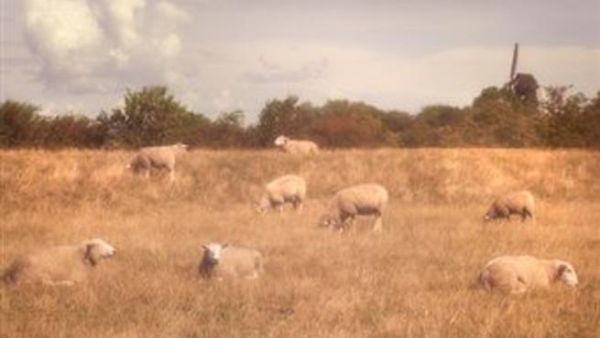The Ministry of Agriculture on Monday reversed a decision to reduce the number of live sheep exported to Gulf states for Eid Al Adha, allowing livestock breeders to resume exports.
Minister of State and Minister of Agriculture Samir Habashneh announced the new decision following a meeting with livestock breeders from around the Kingdom who gathered at the ministry to protest against restrictions imposed on live sheep exports. The minister gave livestock breeders the go-ahead to export sheep to the Gulf states, provided that the animals weigh 40 kilogrammes or more.
Previously, the ministry had taken a decision to decrease the number of live sheep exported to the Gulf - mostly to Saudi Arabia - to ensure the availability of sheep for slaughter for Eid Al Adha, which will take place in early November. Faisal Arqan, the ministrys assistant secretary general for livestock affairs, on Sunday said that the number of sheep to be exported to Saudi Arabia and other Gulf states was lowered to 15,000 to ensure a total of 30,000 head of domestic sheep in the local market during Eid Al Adha.
During the meeting, livestock breeders complained that the ban would have a "disastrous impact on the sector as there is insufficient demand in the local market for the large flocks of sheep they own. "Such a decision, if it remains in effect, would deprive livestock breeders of the ability to sell their large herds of sheep during the sacrifice season," one breeder said. The breeders gave assurances that the export of live sheep will not increase prices in the local market, as the country is well stocked with sheep imported from other countries. During a meeting with journalists yesterday, Habashneh confirmed this, noting that there are currently around 70,000 imported sheep in the local market and a shipment of 60,000 more is on its way.
"The Kingdom consumes around 100,000 heads of sacrifice sheep during Eid Al Adha, 70,000 of which are slaughtered in Amman and the rest in other cities," the minister said. Habashneh also noted that, with fewer than 20 days left before the Hajj season, traders will not be able to export large numbers of live sheep to the Gulf states, as their livestock must go through quality testing measures and customs procedures before being cleared for export.








